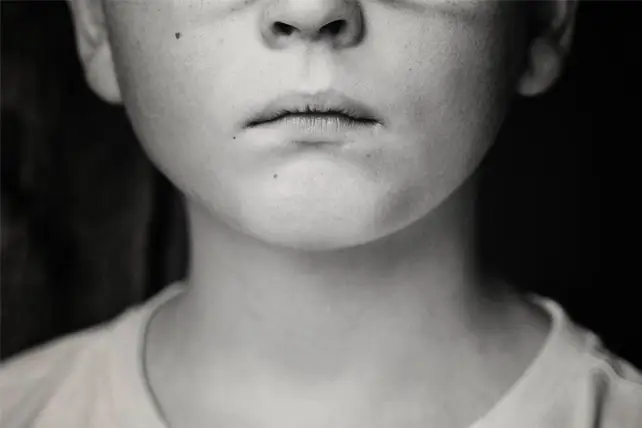I read everything Gary Thomas writes. This was a very interesting article about divorce and marriage with older adults.
Gray Divorce
Jordan looked shell-shocked.
I knew him to be a gregarious man with a great sense of humor, accomplished, confident, almost intimidating (but only because of my insecurities, not because of his arrogance or manipulation).
Yet he sat next to me, swirling in a mental and emotional fog. “I don’t want to teach the Sunday School class anymore,” he said. “I just can’t. I’ve got to process this.”
Jordan was in his forties, but his parent’s marriage was breaking up, and it was tearing him apart. “They were the last couple I ever expected to go through this; how can I have any confidence in marriage now, including my own?”
My good friend, Dr. Steve Wilke, did a doctoral dissertation on the impact of divorce on adult-aged children. His conclusion? Divorce could be even more devastating to adult-aged children than to young kids—and Jordan’s real-life story was proving it.
Here’s how an adult child of divorce, Jen Abbas de Jong, explained it to me: “If you’ve almost completed your jigsaw puzzle so that there are only a few pieces left and someone comes in and turns the table over, tearing your puzzle apart, do you feel better or worse that the puzzle was almost finished? You feel worse, don’t you? And that’s what it feels like when you’re about to launch out as an adult and your parents get a divorce. Part of the reason the divorce is so painful is that everything you were raised to believe about marriage–and perhaps used as the basis of your marriage–has changed.”
The AARP, NPR, the Chicago Tribune, USA Today, and the Washington Post, all run periodic stories about “gray divorce,” couples breaking up in their fifties. It seems that many couples have the notion that they’ll hang together until the last child goes off to college, but on the way back from dropping their youngest child at the campus, they stop at the lawyer’s office to begin divorce proceedings.
We’re fooling ourselves if we think breaking up our children’s home will ever not be painful—even if they no longer live in it. Instead of trying to “minimize the damage,” why not take advantage of an opportunity to maximize the impact? At my son’s wedding rehearsal dinner, my wife counted up my son and daughter-in-law’s parents and grandparents years of unbroken marriage and came up with 310. Isn’t a legacy like that worth striving for?
Becoming empty nesters is actually the worst time to consider a divorce. You’ll have far more energy to rebuild a lonely marriage, more time to work through issues, and usually less stress to attack the marriage. You’ll have more freedom to rediscover sexual intimacy, more time and money to start doing more recreational stuff together—movies, taking walks, and going out to eat. The empty nest years should be seen as a season of tremendous promise, not doom. If your marriage is gasping for air, this is exactly the season where it will be easiest to resuscitate it.
Much of the cause behind gray divorce stems from the fact that couples have lived as strangers for years. They think they’ve become estranged because there’s something wrong with each other rather than the simple fact that the relationship is starving. It’s often a “software” problem, not a “hardware” problem. Instead of getting a new marriage we can invest the same time and energy into rebuilding the old one.
This is a warning to younger couples: don’t let this happen to you. In my book A Lifelong Love I warn of couples who have a lifetime of shared tasks but no shared intimacy. A good marriage is something you make, not something you find, and the hope behind that belief is that you can choose to re-make a marriage at any stage. Don’t overestimate your willingness to put up with a sub-par marriage “for the time being.” When the time is over, you just might stop “being” as a couple.
For those of you about to become empty nesters: what I’ve found is that the initial patterns and routines of an empty nest are crucial. Your marriage will be in a state of flux for a few months, but it won’t be much longer than that before it settles down into the “new normal”—the same old alienation, or a new sense of companionship, purpose, and intimate relating.
Lisa and I consciously decided to do more together than ever before when we became empty nesters. Lisa is now with me more often than not when I travel. We take more bike rides together. We’ve settled on a few favorite television shows. We’ve discovered another empty nest couple that lives just two miles away and have begun new friendships. And we’ve figured out that when the house is empty, you can “go for it” whenever you want to. The clock doesn’t matter. We miss being active parents, but our relationship has never been stronger, closer, or more intimate.
For your own happiness, and certainly for your children’s, use the empty nest years to rediscover each other, build a deeper legacy, and a more intimate marriage. Instead of killing an estranged marriage, choose to rebuild it, reshape it, and rediscover it. Wouldn’t you rather leave an even more inspiring legacy rather than send your adult children reeling with the news that their childhood home no longer exists?
The last child leaving home needn’t be seen as the “finish line,” but rather the starting line to a new intimacy, a bigger legacy, and even the best years of your marriage.



